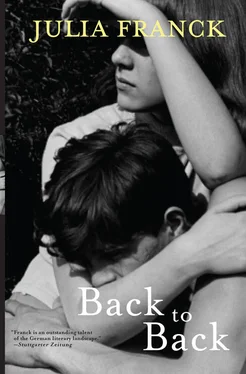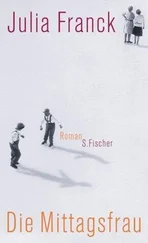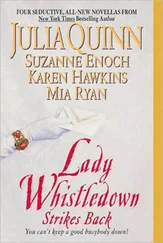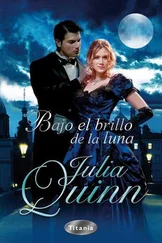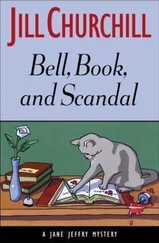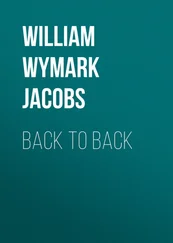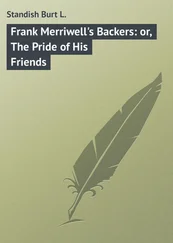What are you doing? Baffled, Ella looked from one to the other.
Shooting, explained Thomas. Ella was in the way, she had no idea what it was all about. He drew on his pipe and blew smoke rings into the air. All that pointlessness has seduced us. We’re devout believers now, we believe there’s no point in life.
To emphasise his faith Thomas, grinning, put one hand round the other and raised them in the air as a double fist, holding the pipe.
Nonsense. Michael shook his head, he stood up, the gun held loosely in his hand, went over to Ella, raised an admonitory forefinger and said gravely: It has nothing to do with belief, we know it. Michael looked at Ella; you would have thought he was in full possession of worldly wisdom. All he needed was to predict the entry into the earth’s atmosphere of a meteorite with absolute certainty. God doesn’t think in terms of sense and nonsense, God thinks only beautiful thoughts, added Michael, things of this world were seldom enough for him, God’s existence was evident to him in all thinking. Only man, unfortunately, has no talent for beauty, or not usually. He’s trapped in functions, intentions, all that nonsense — Michael took a step to one side and threw the airgun to Thomas, who caught it and aimed, keeping his pipe in his mouth. Michael excused himself to Ella; he had to go out for a moment. Thomas shot and immediately aimed a second time. Shot. He took the six-chamber magazine out of the gun and reloaded it with diabolo pellets. Taking no more notice of Ella, he pushed the magazine back into the gun, looked through the sighting notch, drew a bead on Ulbricht’s forehead.
You two are crazy! Ella cried. She stumbled against a bucket of paint; it fell over and left trails on the pale bouclé rug. She put her hands on her hips. You pair of stupid nihilists. Stupid, stupid, stupid! Her voice caught in her throat. Are you disappointed to find that we’re not in Paradise?
Only pretended sympathy. Exhausted, Thomas grinned at her.
You can keep your daft grin to yourself, idiot!
Michael came back. Right, we were going to paint the rug black as well. He nodded his agreement. All that elegant white was bothering me. Smiling gently, he reached his hand out to Ella. Thanks, Ella, thank you very much.
Ella flinched away like an animal. The hand seemed to her as untrustworthy as his thanks. She stood in the doorway with her legs apart and her arms folded.
But Thomas wanted no female spectator; he closed the door of the room in her face.
Stupid nihilists, shouted Ella through the door.
Thomas thought her anger out of place; he put his ear to the door and heard the tip of Ella’s nose still touching the door on the outside, he heard her exhausted breathing, her jealous whispering: stupid, stupid, stupid.
You tell me yours, I’ll tell you mine. Thomas bent down to the floor, took a sip from the wine glass and drank to Michael. He took a folded piece of paper from his trouser pocket, holding the glass in one hand; it was difficult to unfold the poem with the other alone. He had written it in pencil and hadn’t got round to typing it yet. ‘A Call’. The wine was pleasantly rough on his palate. I tell you, away so far — / I tell you, far away — / Far away on the star: / Here is what I say! / Noisy men stride by, / And much is broken — / The silent weep in silence, / No law is awoken! / Those who stab us, / Judge them now / Who break our eyesight / Judge them too. / Noisy men stride by / Broken freedom was bright — / Blood flows in the pool of water: / Give us light.
He went to Gommern on his own. Käthe had given him a sketch-pad and charcoal to take with him, bedlinen, a spare pair of trousers, soap. Even from the train he saw the pillars of dark smoke, and soon after that the two chimneys from which they were rising came into view. Going south through the woods, he passed the great wandering dune that lay on the Kulk, one of the oldest lakes filling the stone quarries at Gommern. The sandy soil threw up ripples. The hostel, three huts, stood on the road to the quarry. Behind it was the manager’s house. They slept four to a small room, two bunk beds, a table and a locker in each. Thomas was sent to a room with the apprentices. There was an acrid smell of sweat, alcohol, urine, something going bad. You got up at five in the morning when it was still dark, work began at six, gloves were provided. At first sight the apprentices looked to Thomas rather younger than him, one might have been seventeen, like Thomas, the other two were more probably fifteen. Were they apprenticed to learn about stone quarrying? Was that a profession you trained for? The boys made fun of him when he said hello, asking what sort of posh guy he was. No one asked him anything else. Thomas took the free bottom bunk, his bedclothes were too small for the long, scratchy blanket above them, which could have been woven of coarse wool and remains of plant substances. Thomas thought of thistles, he turned to the wall and scribbled words on the sketch pad with his well-chewed pencil. Instead of silence: lonely helpless pointless / Always beginning — / Always the same / Life, you are death / I am great in the shadows — / I am endless waiting / A small, dirty scrap of fear. . / Your sphinx eyes are fixed / for millions of years! Later he closed his eyes, although the neon tube on the ceiling was still lit, and the boys were playing cards. They were bawling. The prize on offer was a certain lady from the Wasserburg. The boys raised the stakes, the atmosphere was heated, in spite of the cold they sat there in their vests sweating. They reminded each other of intimate details of the woman. Her big boobs, her behind, but also how much she obviously enjoyed it. She was the prize for whoever had won at the end of the evening, and the others were going to watch.
In the morning Thomas opened his eyes and heard a splashing as if someone had turned on a tap. But no one was washing. The boy with an ear that stuck out and freckles who had been sleeping above him that night was standing beside the bunk bed peeing. Thomas blinked; perhaps he was wrong. The boys murmured, laughed at a joke that Thomas hadn’t heard. He pretended to be asleep.
Someone held an alarm clock right against his ear. Thomas threw back the blanket and was going to slip his shoes on. They were wet with the boy’s piss, it was running out over the tongues of the shoes, over the leather and so to the floor, it was trickling through the seams, the boy hadn’t aimed straight and Thomas’s shoes were standing in a puddle. Six eyes were resting on him. He looked up. Get dressed!
There was nothing to be done; Thomas had no other shoes. Got any ciggies? The youngest boy stretched out his hand to Thomas, patted him experimentally down, his jacket, his trouser pockets. With the bunk bed behind him, Thomas couldn’t avoid his hands. What was the boy looking for? Thomas took the packet of cigarettes out of his trouser pocket; the boy snatched it from him.
It was still dark in the stone quarry; they had pickaxes. The water was high in most of the pits, shallow in the later ones, pits had been closed over the last few years as soon as groundwater emerged and rose. The new boy had to show his fins. He was surrounded by the laughter of the apprentices, who had been joined by four other young men. Thomas was the new boy. Show your fins!
Maybe he was a girl, someone suggested, not wanting to undress? Hey, the girlie’s coy! They were crowding round him. Scaredy-cat! Their laughter echoed against Thomas’s ribs. He was not cowardly, he undressed. His wet, stinking shoes, his shirt, his underpants.
The water was soft and cold. The bottom was stony, obviously the bottom of a former quarry. Thomas showed what his fins could do. The water glowed dark blue, he had never seen water like that before. Maybe it was quartzite that gave the water its colour. When he came out of the shallow lake after a few minutes, his shoes were where he had left them. Ten eyes rested on him, no one was laughing.
Читать дальше
